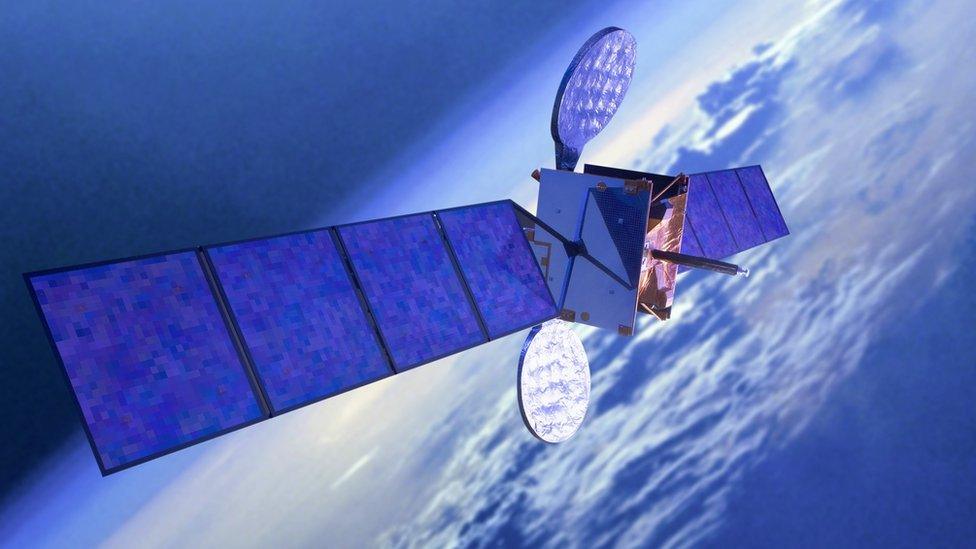We built a spaceport on a Scottish island
- Published
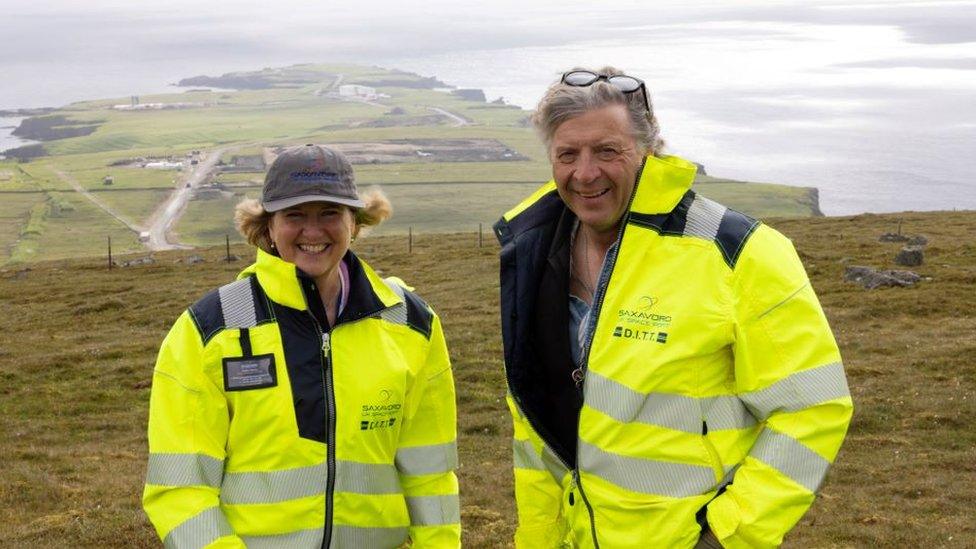
Debbie and Frank Strang bought a former RAF radar station 15 years ago
A husband and wife are on the verge of opening a spaceport on a tiny island.
Frank and Debbie Strang bought a former RAF radar station on Unst in Shetland about 15 years ago with an idea to turn it into an eco-tourism attraction.
But the plan changed when the UK government was looking for potential sites for vertical launches of small rockets carrying satellites.
The Strangs could now be just weeks away from seeing the site secure a spaceport licence.
By next summer, they hope that three rocket launches will have been completed at the facility on UK's most northerly inhabited island, which is home to fewer than 700 people.
The site, and overall project, is today owned by SaxaVord Spaceport, which was set up as a stand-alone company with the Strangs as founder shareholders. It now has 400 shareholders and more than 80 staff.
Frank is the chief executive and Debbie runs visitor management, while a team of people from engineers to stewards is working towards getting the spaceport operational.
"I never thought I would be involved in space," Debbie said.
"Even though we are five years into the journey, I still find it surreal but incredibly exciting that we are working on this."
The spaceport built on tiny Scottish island Unst
Frank added: "We have fought and bit and scratched to get to the point where we are at now, with the help of an awful lot of people.
"It's been a long journey, but as my granny would have said: nothing comes easy."
The couple met when they were RAF officers serving at Lossiemouth air station in Moray, on Scotland's north-east coast.
Debbie, 58, is originally from Droitwich Spa, Worcestershire, while Frank, 65, hails from Dornoch.
They bought SaxaVord radar station for an undisclosed sum at a time when the Ministry of Defence was shutting down and selling off land and properties.
The couple's original vision was to create a visitor attraction to support Shetlands' wildlife and eco-tourism.
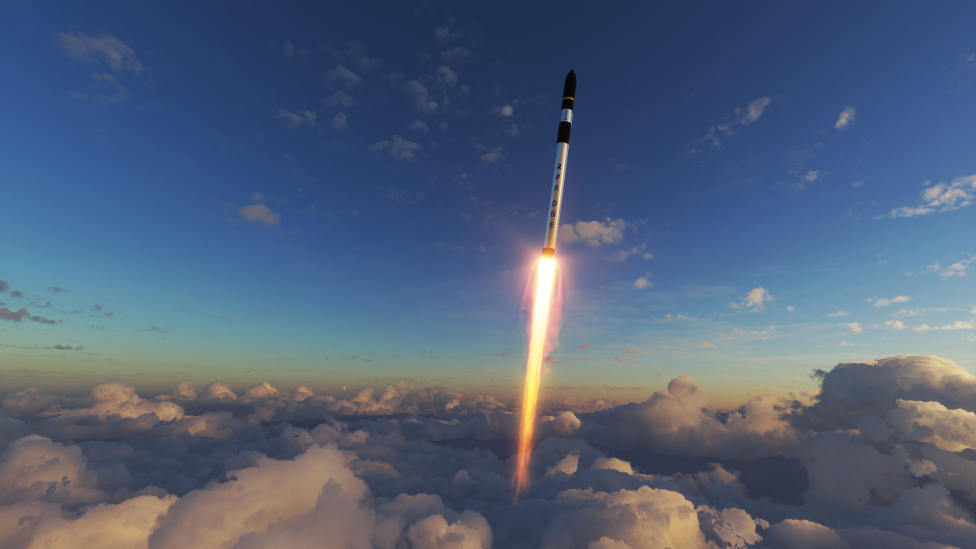
German company Rocket Factory Augsburg could launch from the site early next year
But then the UK government's Pathfinder mission to create spaceports across the UK opened up a new opportunity.
With help from Shetland Islands Council, the Strangs gauged industry interest in a spaceport on Unst before starting the hard work of persuading Shetlanders, planners and investors to come onboard.
Frank said: "The biggest challenge was people believing that we were real.
"Gaining planning permission was a long process, but once we got through that work started immediately."
Debbie added: "I think the biggest challenge, and it continues to affect us daily, is that every element of the spaceport development is being done for the first time, and there is no UK pool of people from which to recruit.
"To overcome this we have recruited very able people with transferable skills who are adaptable, determined and patient to work with the myriad of public agencies to find out how we plan, develop and build the spaceport.
"They are an incredible team of professionals and the company has a skillset and knowledge that would be difficult to find anywhere else."
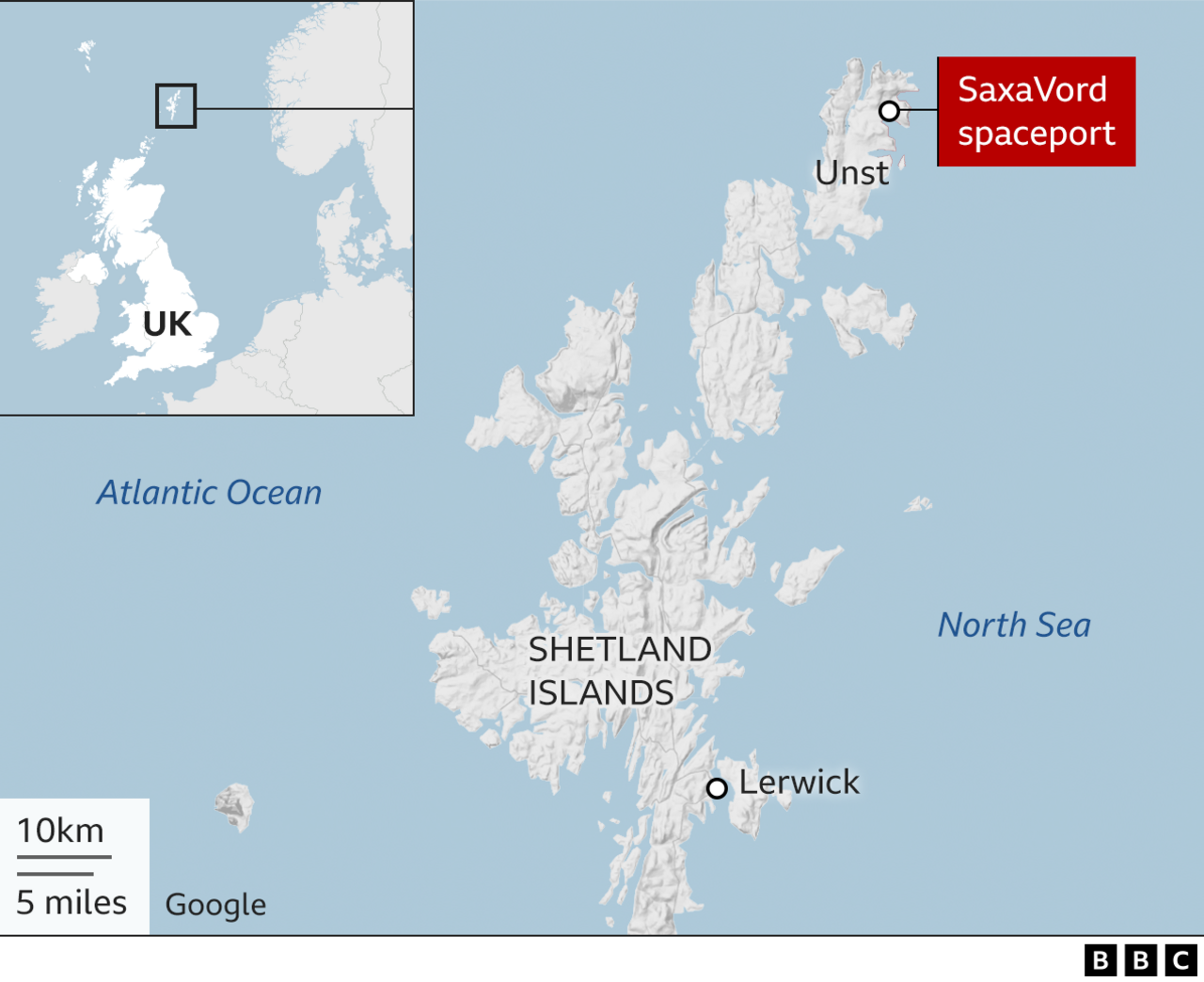

SaxaVord Spaceport is mostly privately funded, with investors including Danish billionaire and Highland landowner Anders Holch Povlsen's company Wild Ventures Ltd. Mr Povlsen opposed a similar spaceport plan near his Highland estate in Sutherland on environmental grounds.
To date, the project has secured £20m in equity, £10m in debt and loans, along with a large development bond.
The spaceport's workforce has grown from six to 82 full-time roles, with more than 30% of the staff coming from Shetland.
Next year there could be as many as 130 people working at the site.
Within the next four to six weeks, the project hopes to reach a crucial milestone by gaining a spaceport licence.
Further licences will be needed for launches, rockets and satellites.
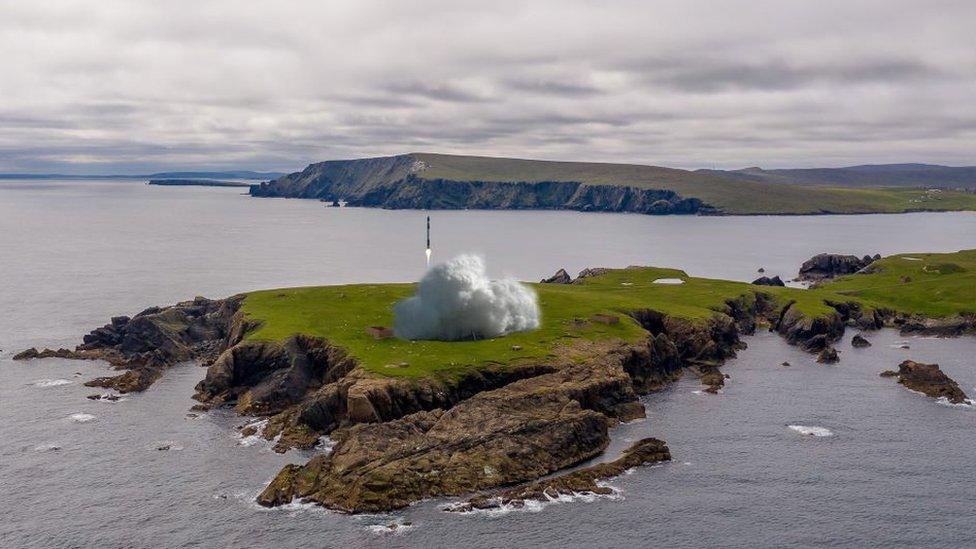
A mock-up of a rocket launch from SaxaVord Spaceport
Four other spaceports are planned for Scotland - Space Hub Sutherland in the Highlands, Spaceport 1 in the Western Isles, Prestwick Spaceport in South Ayrshire and Spaceport Machrihanish in Argyll.
Elsewhere in the UK, there is Spaceport Cornwall in south west England and plans for Spaceport Snowdonia in Wales.
The first launch from Unst is expected to take place by the end of this year.
It will be a test mission to send a rocket made by German company HyImpulse up to a height of 29 miles (47km).
Another German company, Rocket Factory Ausburg (RFA), is planning an orbital launch early next year, followed by a Lockheed Martin/ABL Space Systems launch later in 2024.
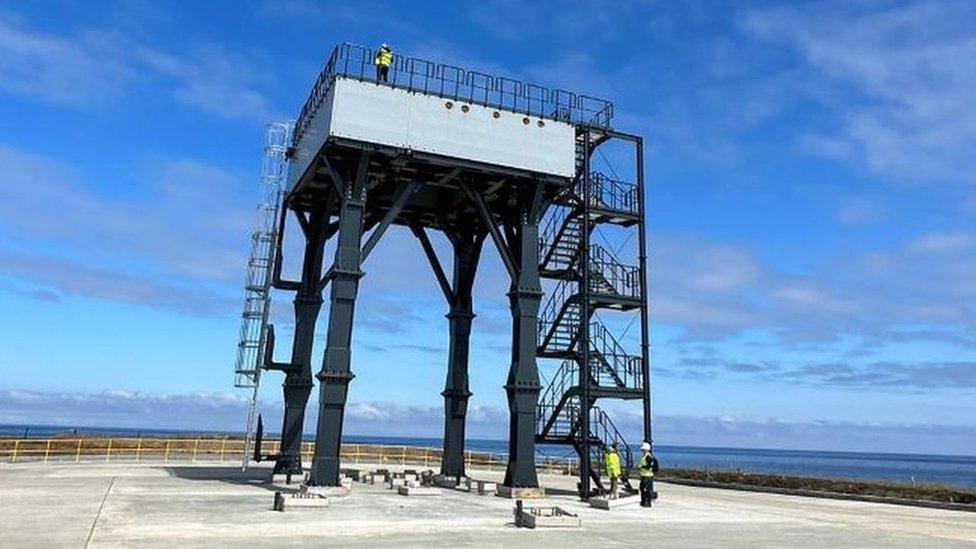
Some testing has already been possible at the site ahead of planned launches
Satellites put into orbit around the Earth could be used for communications and monitoring climate change.
Rocket engine tests have already been conducted on a completed launch pad.
"At the moment we take one step at a time," Debbie said.
"While the launch is the vision that the whole team works towards, it is still difficult to imagine being in Unst, listening to the countdown and waiting for a safe and successful launch."

Analysis by Laura Goodwin, Innovation correspondent, BBC Scotland
Getting to the most northern point in the UK is a bit of a mission in itself……a flight from mainland UK - then one ferry and then another ferry before you arrive in Unst.
However it's remoteness is one of the reasons Unst could soon be something of a super highway into space.
Frank Strang and I are standing on the very top of launch pad Fredo, named after the late son of Anders Povlsen, one of the spaceport's biggest investors.
One day soon they hope a rocket will launch into space from this very spot, carrying small satellites which could be used to improve connectivity or monitor climate patterns.
Location, location, location, Frank tells me is key.
Surrounded by miles of water and with relatively quiet airspace, Unst, he says is in the goldilocks position. Just right.
But as others have shown, successfully getting rockets into space is a tricky business and the team still need the correct permissions from the civil aviation authority before they can even try.
Related topics
- Published21 July 2023
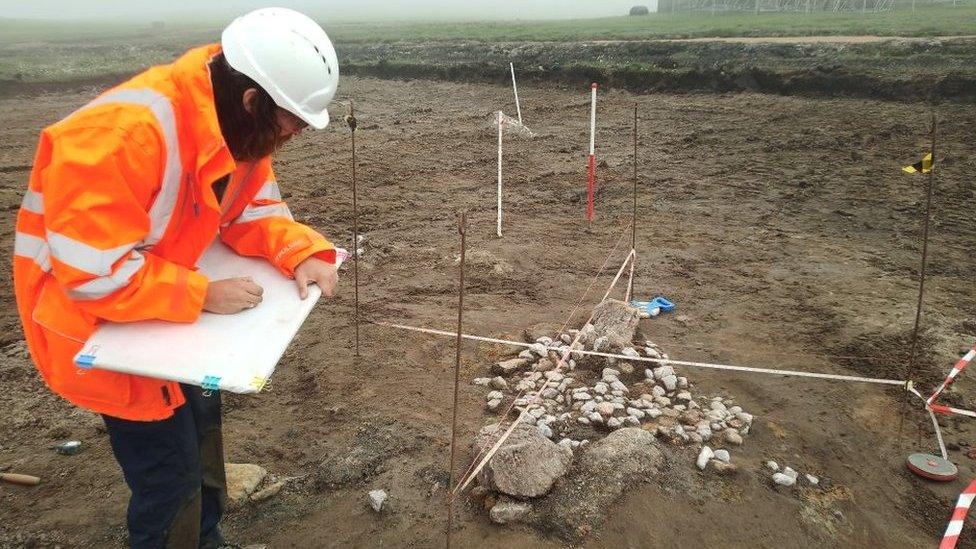
- Published28 February 2022
- Published20 October 2021
